A Complete Guide for Investors Diving into the Groundbreaking World of Digital Assets
Blur: NFT | Blur: NFT login | Blur: NFT connect | WalletConnect | Traders | What Is Blur Crypto
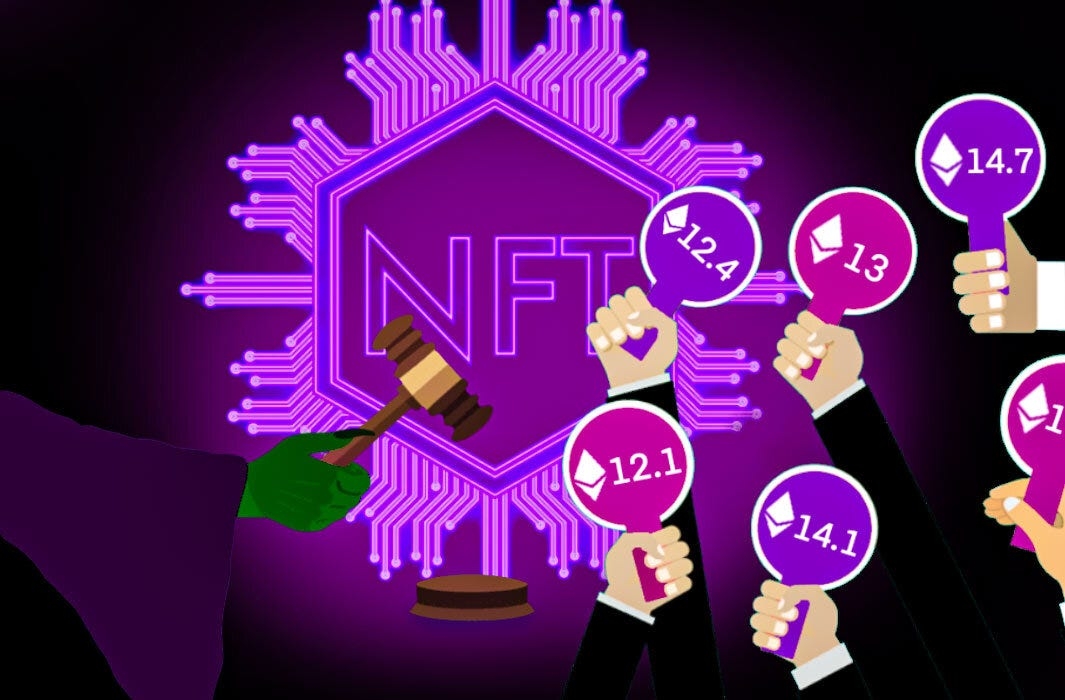
Blur: NFT | Blur: NFT login | Blur: NFT connect | WalletConnect | Traders | What Is Blur Crypto
Welcome to the future of digital ownership! Bitcoin NFTs, or non-fungible tokens, have taken the world by storm, revolutionizing the way we think about and value digital assets. In this comprehensive guide, we will dive deep into the world of Bitcoin NFTs and explore why they are becoming increasingly popular among investors.
So, what exactly are Bitcoin NFTs? Unlike traditional cryptocurrencies like Bitcoin or Ethereum, which are fungible and can be exchanged on a one-to-one basis, NFTs are unique and indivisible. Each NFT represents a specific piece of digital content, such as art, music, or virtual real estate. This unique property of NFTs opens up a whole new world of possibilities for creators, collectors, and investors alike.
One of the key advantages of Bitcoin NFTs is their ability to prove ownership and authenticity. Blockchain technology, the underlying technology behind Bitcoin and other cryptocurrencies, provides a transparent and immutable record of ownership. This means that once you own a Bitcoin NFT, you can be certain that it is genuine and cannot be duplicated or tampered with.
Another reason why investors are flocking to Bitcoin NFTs is their potential for incredible value appreciation. Just like traditional art or collectibles, the value of NFTs can skyrocket based on factors such as scarcity, demand, and the reputation of the creator. Early adopters and savvy investors have already made significant profits by buying and selling Bitcoin NFTs, making this digital asset class an exciting investment opportunity.
Whether you're a seasoned cryptocurrency investor or just starting to dip your toes into the world of digital assets, this guide will equip you with the knowledge and tools you need to navigate the exciting world of Bitcoin NFTs. We will cover everything from the basics of blockchain technology to the intricacies of NFT marketplaces and the latest trends in the space. Get ready to unlock the potential of Bitcoin NFTs and embrace the future of digital ownership!
Understanding Bitcoin NFTs
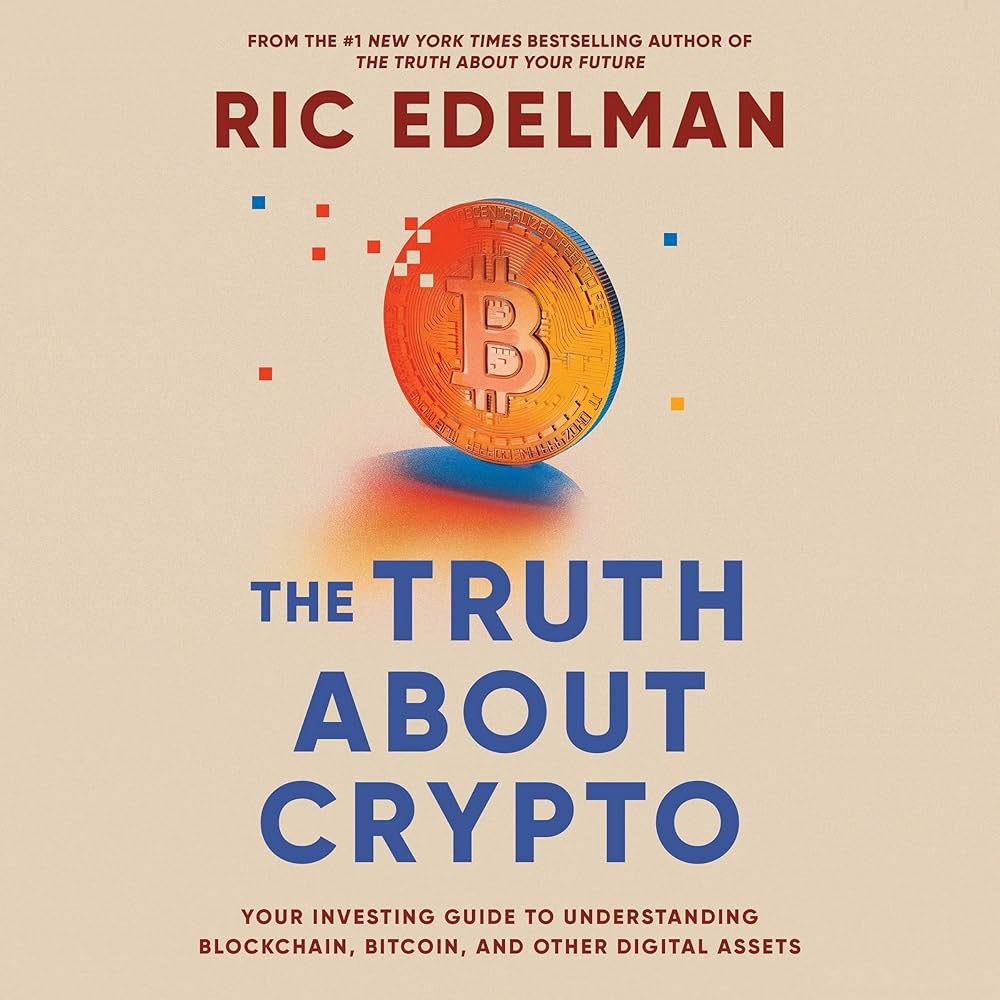
Non-Fungible Tokens (NFTs) have recently gained massive popularity in the digital asset space. While Bitcoin is known as the pioneer cryptocurrency, it is important to understand how NFTs operate on the Bitcoin blockchain.
What are NFTs?
NFTs are unique digital assets that represent ownership or proof of authenticity of a specific item or piece of content. Unlike cryptocurrencies like Bitcoin that are fungible and can be exchanged on a one-to-one basis, NFTs are indivisible and each one is unique.
NFTs can be used to represent various forms of digital or physical assets, such as artwork, music, domain names, virtual real estate, and more. They are built on blockchain technology, which ensures secure ownership and enables transparent transactions.
NFTs on the Bitcoin Blockchain
While NFTs have gained significant traction on other blockchain networks like Ethereum, they have also found a place on the Bitcoin blockchain. Bitcoin, being the largest and most secure blockchain network, offers a reliable foundation for NFTs.
Bitcoin NFTs operate as layer-two solutions, meaning they utilize additional protocols built on top of the Bitcoin blockchain. These protocols enable the creation, transfer, and trading of NFTs while leveraging the security and robustness of the Bitcoin network.
One popular example of a Bitcoin NFT protocol is the RGB protocol. RGB allows users to issue and trade NFTs through Bitcoin transactions. It utilizes colored coins, a technique that associates specific values or attributes with bitcoins, thus representing the NFTs.
Benefits of Bitcoin NFTs
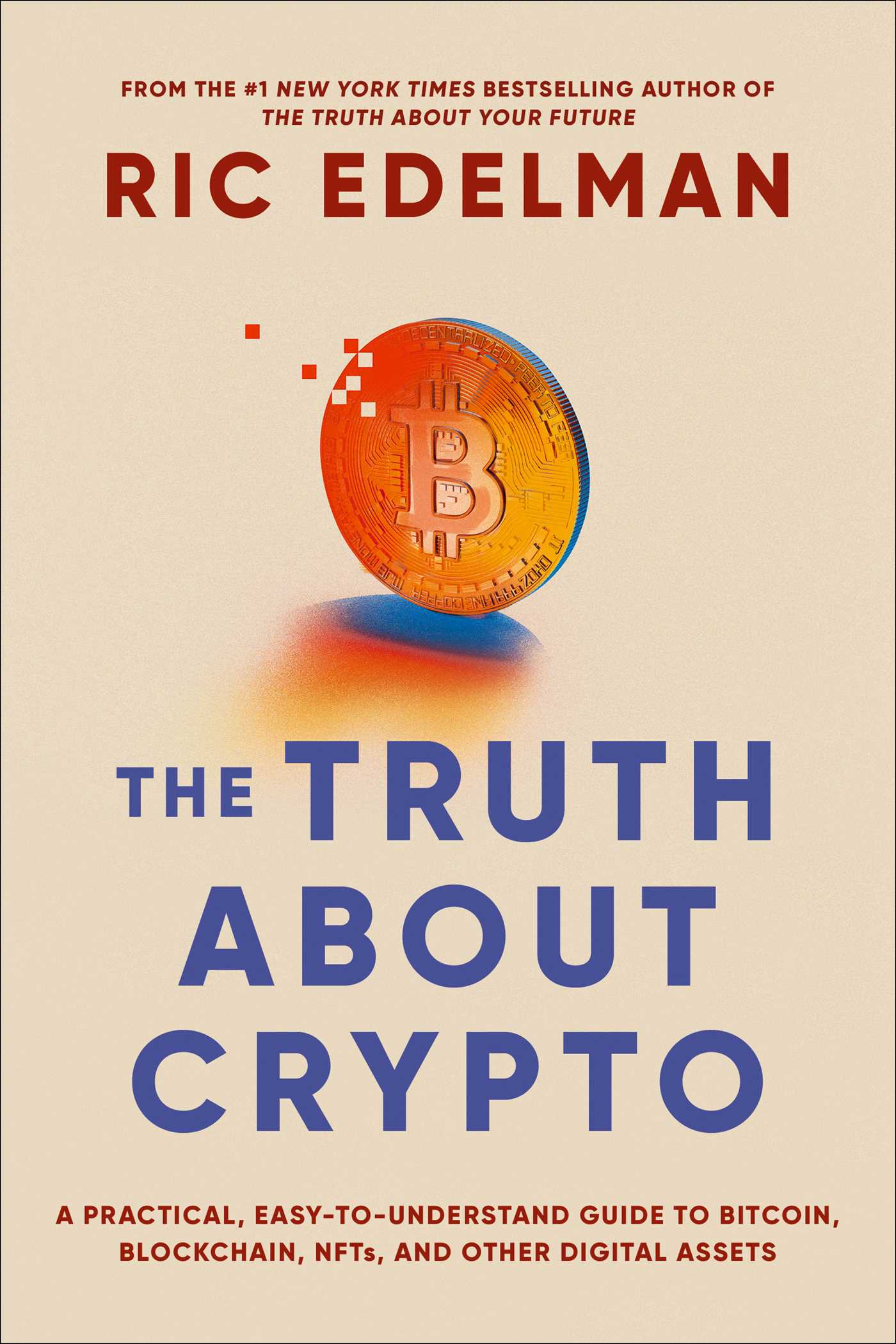
Bitcoin NFTs offer several advantages to investors and users:
Security:
The Bitcoin blockchain is highly secure, making it attractive for storing and transacting with NFTs.
Robustness:
The Bitcoin network has been operational for over a decade with a proven track record of reliability and resilience.
Community:
Bitcoin has a large and active community, which brings more visibility and support to Bitcoin-based NFT projects.
Liquidity:
Being integrated with Bitcoin, NFTs on the Bitcoin blockchain can benefit from the liquidity and market depth of Bitcoin.
Investors exploring the world of NFTs can consider Bitcoin NFTs as a secure and reliable option. With the growing interest and innovation in the space, Bitcoin NFTs are poised to revolutionize the digital asset class.
A Comprehensive Guide for Investors Exploring this Revolutionary Digital Asset Class
Bitcoin NFTs, or non-fungible tokens, are quickly becoming one of the most talked-about investment opportunities in the digital world. As more people begin to understand the potential of NFTs, the demand for Bitcoin NFTs continues to grow. In this comprehensive guide, we will explore what Bitcoin NFTs are, how they work, and why investors should consider adding them to their portfolio.
Bitcoin NFTs are unique digital assets created on the Bitcoin blockchain. Unlike cryptocurrencies such as Bitcoin or Ethereum, NFTs represent ownership of a specific item or piece of digital content. These items can range from digital artworks and collectibles to virtual real estate and domain names.
Bitcoin NFTs work by utilizing blockchain technology to verify ownership and maintain a transparent record of each transaction. Each NFT contains a unique identifier that distinguishes it from other tokens, making it impossible to forge or duplicate. This ensures that the owner of an NFT can prove their ownership and authenticity.
Investing in Bitcoin NFTs offers several advantages. Firstly, NFTs have the potential to appreciate in value over time. Just like physical artworks or collectibles, rare and highly sought-after NFTs can increase in value as demand grows. Additionally, Bitcoin NFTs provide investors with a way to diversify their crypto portfolios and explore a different asset class.
However, investing in Bitcoin NFTs also comes with risks. The NFT market is still relatively new and volatile, which means that prices can fluctuate dramatically. It's essential for investors to do their research, understand the market, and carefully select the NFTs they invest in.
When considering investing in Bitcoin NFTs, it's crucial to understand the different types of NFTs available and their potential for growth. Some popular types of NFTs include digital art, virtual collectibles, and virtual real estate. By understanding these various categories, investors can make informed decisions about which NFTs to invest in.
In conclusion, exploring the world of Bitcoin NFTs can be an exciting venture for investors looking to diversify their portfolios and participate in this revolutionary digital asset class. By understanding what Bitcoin NFTs are, how they work, and the potential risks and rewards, investors can navigate the NFT market with confidence and make informed investment decisions.
What are Bitcoin NFTs
Bitcoin NFTs, or non-fungible tokens, are unique digital assets that are built on the Bitcoin blockchain. While Bitcoin is primarily known as a decentralized digital currency, NFTs allow for the creation and ownership of one-of-a-kind digital items, such as art, collectibles, and virtual real estate, within the Bitcoin ecosystem.
Unlike traditional cryptocurrencies like Bitcoin, which are fungible and can be exchanged on a like-for-like basis, NFTs cannot be replicated or replaced. Each NFT is distinct and carries specific ownership information recorded on the Bitcoin blockchain, making them verifiable and immutable. This uniqueness and transparency make Bitcoin NFTs highly valuable and ideal for digital collectors and investors.
By utilizing the Bitcoin blockchain, Bitcoin NFTs benefit from the security, scalability, and decentralization inherent in the Bitcoin network. The Bitcoin blockchain allows for efficient and trustless transactions, ensuring that ownership and provenance of Bitcoin NFTs can be easily verified by anyone. Additionally, Bitcoin NFTs have the potential to be interoperable with other blockchain networks through the use of protocols like Atomic Swaps.
Bitcoin NFTs have gained significant popularity in recent years, with artists, musicians, and content creators leveraging the technology to tokenize and monetize their work. By creating and selling Bitcoin NFTs, creators can protect their intellectual property rights, earn royalties, and engage directly with their audience. Investors, on the other hand, are attracted to the potential for value appreciation and diversification offered by investing in Bitcoin NFTs.
There are various Bitcoin NFT marketplaces available where users can buy, sell, and trade Bitcoin NFTs. These platforms provide a user-friendly interface for exploring and discovering different Bitcoin NFTs. One popular marketplace is BLUR.io.
Benefits of Bitcoin NFTs
1. Ownership and Proof of Authenticity: Bitcoin NFTs provide a unique way to prove ownership and authenticity of digital assets. The decentralized nature of the Bitcoin blockchain ensures that ownership records are transparent, tamper-proof, and publicly verifiable.
2. Monetization Opportunities: Bitcoin NFTs enable artists and content creators to tokenize their work and earn revenue through the sale, licensing, or distribution of their digital assets. This opens up new avenues for monetization and creates direct engagement between creators and their audience.
3. Potential for Value Appreciation: Similar to traditional collectibles, investing in Bitcoin NFTs can offer potential returns through value appreciation over time. As the popularity and demand for Bitcoin NFTs continue to grow, the value of rare and desirable NFTs may increase.
4. Diversification: Bitcoin NFTs provide investors with a unique asset class to diversify their digital portfolios. By adding Bitcoin NFTs to their holdings, investors can hedge against market volatility and potentially benefit from the growth of the NFT market.
In conclusion, Bitcoin NFTs offer a revolutionary way to create, own, and trade unique digital assets within the Bitcoin ecosystem. With their inherent scarcity, transparency, and potential for value appreciation, Bitcoin NFTs have captured the attention of both creators and investors. If you're interested in exploring and acquiring Bitcoin NFTs, be sure to check out BLUR.io, a popular Bitcoin NFT marketplace for buyers and sellers.
The Benefits of Bitcoin NFTs
Bitcoin NFTs, or non-fungible tokens, have gained significant attention and popularity in the digital asset world. These unique digital assets offer several benefits that make them a valuable investment opportunity for both collectors and investors.
1. Authenticity and Ownership
One of the key benefits of Bitcoin NFTs is the ability to prove the authenticity and ownership of a specific digital asset. Each NFT is created on the blockchain, providing a transparent and immutable record of ownership. This ensures that no one can duplicate or steal the asset, making it a reliable proof of ownership.
2. Scarcity and Rarity
Bitcoin NFTs add a level of scarcity and rarity to digital assets, making them highly sought after by collectors. Unlike cryptocurrencies, which can be infinitely divided, each NFT is unique and indivisible. This limited supply creates a sense of exclusivity, driving up the value for collectors and investors.
Moreover, NFT creators can set specific parameters on the number of tokens they produce, further enhancing the scarcity and value of the digital asset.
3. Diverse Use Cases
Bitcoin NFTs have the potential for a wide range of use cases beyond traditional collectibles. They can represent ownership of virtual real estate, event tickets, art, music, in-game items, and more. This versatility opens up various opportunities for creators, collectors, and investors to explore and leverage the potential of NFTs in different industries.
4. Royalties and Revenue Sharing
One unique feature of Bitcoin NFTs is the ability to include smart contracts that enable creators to earn royalties from secondary market sales. Whenever an NFT is resold, the original creator can receive a percentage of the sale price, allowing them to continue earning revenue even after the initial sale.
This royalty mechanism creates a sustainable model for artists, musicians, and other creators, incentivizing them to produce more high-quality digital assets.
In conclusion, Bitcoin NFTs offer benefits such as proving authenticity and ownership, scarcity and rarity, diverse use cases, and revenue sharing through royalties. As the NFT market continues to evolve and expand, these unique digital assets present an exciting and potentially lucrative investment opportunity for those willing to explore this revolutionary asset class.
Exploring the Advantages of Investing in Bitcoin NFTs
Bitcoin non-fungible tokens (NFTs) have emerged as a revolutionary digital asset class, capturing the attention of investors worldwide. These unique tokens represent ownership or proof of authenticity for various digital assets, including digital art, collectibles, virtual real estate, and more. Here, we explore the advantages of investing in Bitcoin NFTs and why they are becoming increasingly popular.
1. Unique Ownership
Bitcoin NFTs provide investors with the opportunity to own a unique piece of digital content. Unlike traditional cryptocurrencies, where a single unit is interchangeable with another, each Bitcoin NFT is one-of-a-kind. This uniqueness adds value and exclusivity to the asset, making it highly desirable among collectors and enthusiasts.
2. Authenticity and Proof of Ownership
With blockchain technology, Bitcoin NFTs guarantee immutability, transparency, and integrity. Every transaction and ownership transfer of an NFT is recorded on the blockchain, providing an irrefutable proof of ownership. This feature eliminates the risk of counterfeit or stolen assets, ensuring that investors can confidently buy and sell Bitcoin NFTs.
3. Potential for Value Appreciation
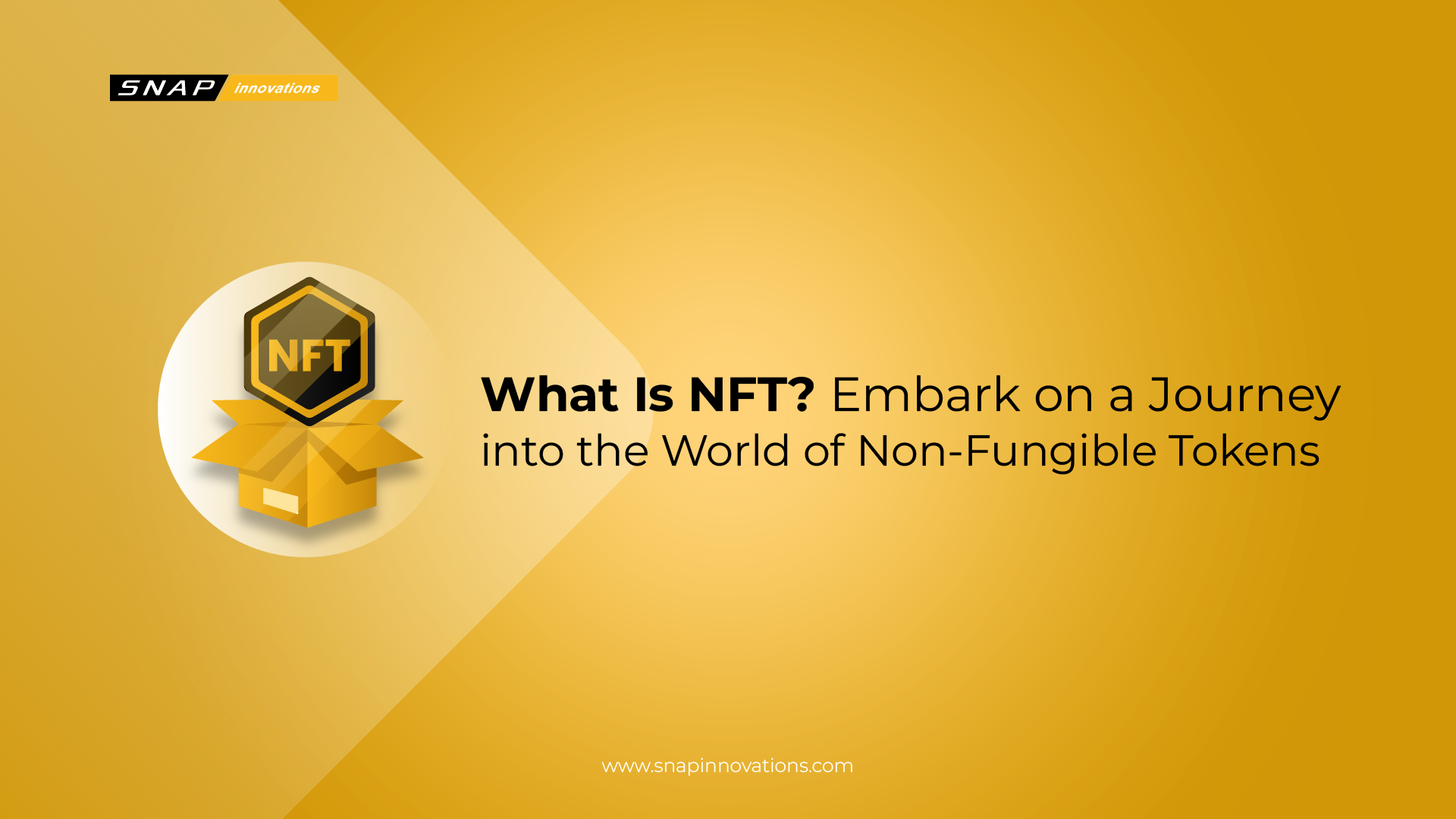
Investing in Bitcoin NFTs comes with the potential for significant value appreciation. As the demand for these digital assets continues to rise, their scarcity and uniqueness contribute to higher prices in the market. Just like traditional art or rare collectibles, Bitcoin NFTs can appreciate in value over time, providing investors with a potential return on their investment.
4. Diverse Investment Opportunities
The Bitcoin NFT ecosystem offers a wide range of investment opportunities. From artwork and music to virtual real estate and virtual goods, investors have the flexibility to choose the digital assets that align with their interests and investment strategies. This diversity allows for portfolio diversification and the ability to participate in different sectors of the digital economy.
Investing in Bitcoin NFTs can be done through various NFT marketplaces, such as Blur.io. These platforms provide a seamless and secure way to discover, buy, and sell Bitcoin NFTs, connecting investors with artists, creators, and other collectors in the digital art world.
Overall, investing in Bitcoin NFTs offers unique advantages, including ownership of one-of-a-kind digital assets, proof of authenticity, potential value appreciation, and diverse investment opportunities. As the NFT market continues to evolve, it is essential for investors to stay informed and explore this revolutionary asset class.
Bitcoin NFTs vs Traditional Assets
Bitcoin non-fungible tokens (NFTs) have gained significant attention in recent years due to their ability to revolutionize the concept of digital ownership. While traditional assets have long been the cornerstone of investments, Bitcoin NFTs offer a new and unique opportunity for investors to diversify their portfolios.
The Concept of Ownership
Unlike traditional assets, where ownership is often defined by physical possession or legal documentation, Bitcoin NFTs utilize blockchain technology to establish and verify ownership. This decentralized ledger ensures that each NFT is unique and cannot be replicated or forged, providing a new level of security and transparency.
Traditional assets, on the other hand, rely on centralized systems such as banks or government institutions to validate ownership. This can often lead to delays, bureaucracy, and the potential for fraud.
Digital Scarcity
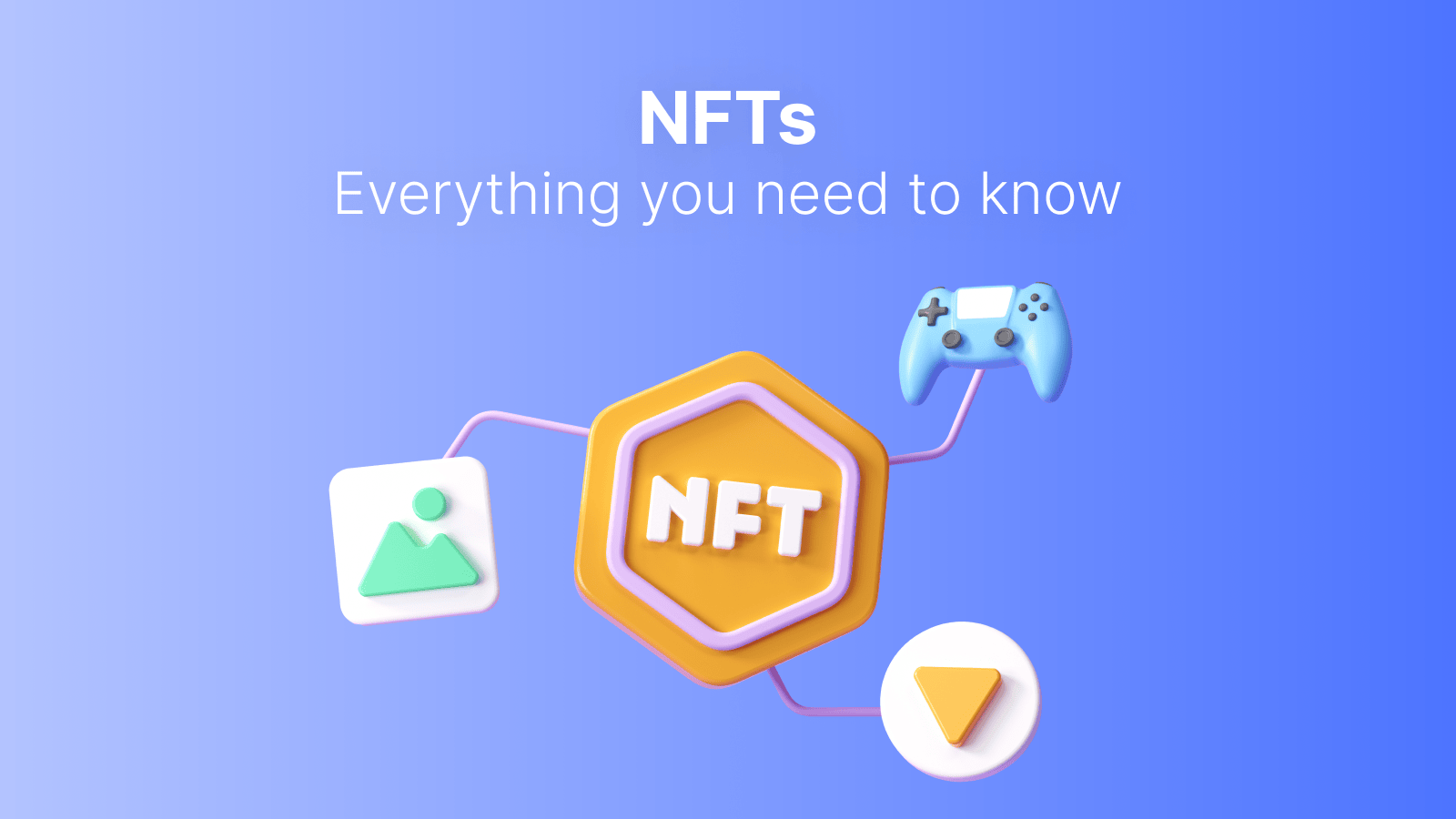
Bitcoin NFTs also introduce the concept of digital scarcity, where each token represents a one-of-a-kind item, artwork, or collectible. This scarcity can drive up the value of the NFT, as collectors and enthusiasts compete to own a unique piece within a limited supply.
In contrast, traditional assets like stocks or real estate can be easily replicated or divided into smaller fractions, diluting their scarcity value.
Unique Investment Opportunities
Investing in Bitcoin NFTs opens up new and unique opportunities for investors. Unlike traditional assets that are often bound by geographical limitations or regulations, Bitcoin NFTs can be bought, sold, and traded globally, 24/7. This offers investors the potential for increased liquidity and access to a global marketplace.
Furthermore, Bitcoin NFTs allow investors to support their favorite artists, creators, and communities directly. By purchasing an NFT, investors can contribute to the success and growth of these individuals or organizations, creating a more direct and personal connection between the investor and the asset.
In conclusion, the emergence of Bitcoin NFTs represents a new frontier for investors looking to explore the digital asset class. With their unique properties of ownership, scarcity, and global accessibility, Bitcoin NFTs offer a fresh perspective on investing that can complement and diversify traditional assets.
Comparing the Characteristics and Potential of Bitcoin NFTs and Traditional Investments
Bitcoin NFTs and traditional investments are two very distinct asset classes, each with its own unique characteristics and potential. Understanding the differences between the two can help investors make informed decisions about where to allocate their funds.
Digital Nature
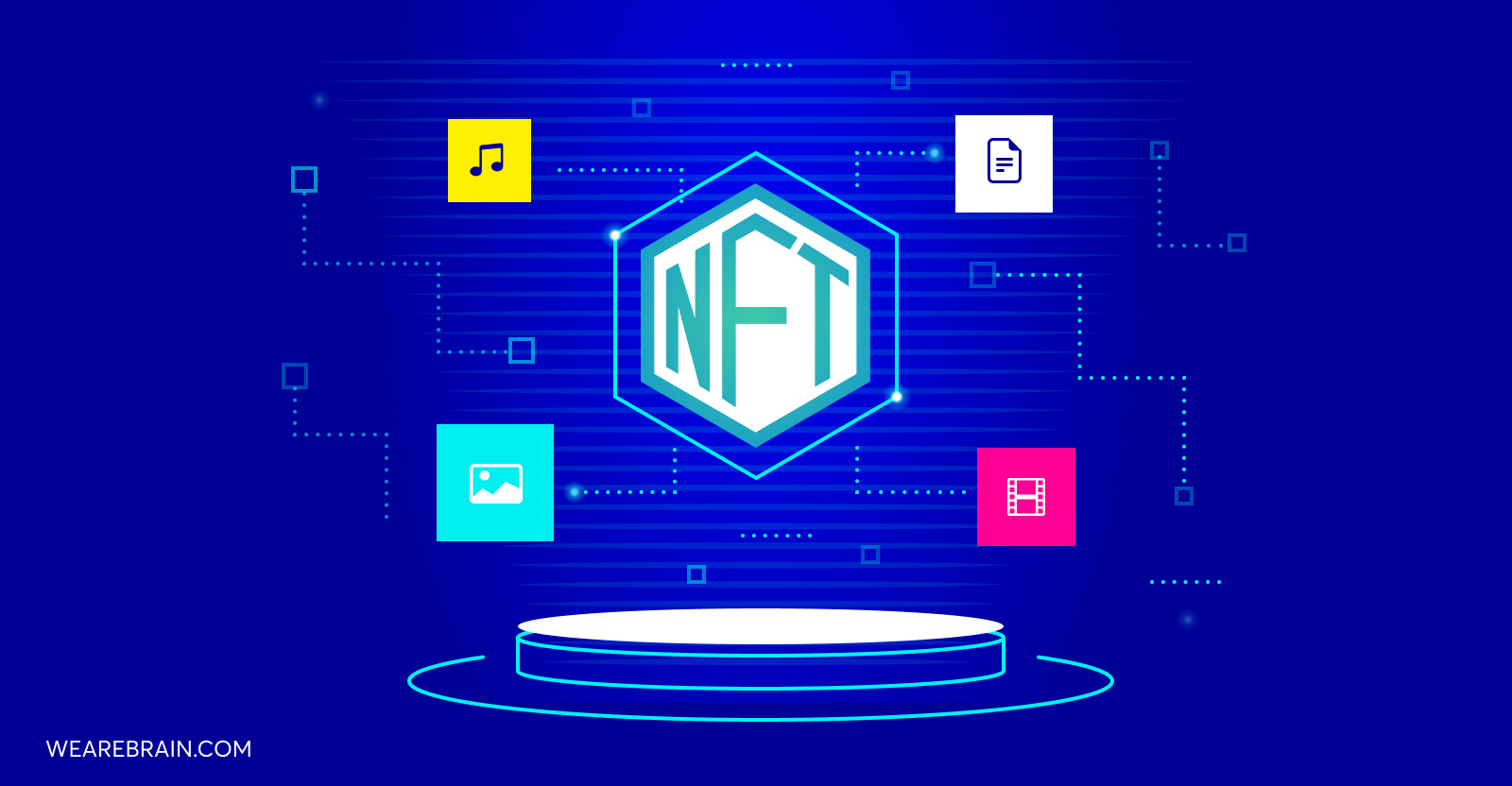
Bitcoin NFTs are purely digital assets that exist solely in the digital realm. They are created and traded on blockchain platforms, making them easily accessible to anyone with an internet connection. Traditional investments, on the other hand, typically involve physical assets such as stocks, bonds, or real estate.
Liquidity
Bitcoin NFTs offer a high degree of liquidity compared to many traditional investments. Since NFTs can be traded freely and instantly on blockchain platforms, investors can buy and sell them at any time without the need for intermediaries. Traditional investments, on the other hand, may require brokerage services and the involvement of third parties, which can introduce delays and additional costs.
Value Proposition
The value proposition of Bitcoin NFTs lies in their uniqueness, scarcity, and digital ownership. NFTs can represent a wide array of digital content, including artwork, collectibles, and virtual real estate. Traditional investments, on the other hand, often focus on income generation or capital appreciation. The value of traditional investments is typically based on financial performance, economic conditions, and other factors.
Market Dynamics
The market dynamics of Bitcoin NFTs and traditional investments are also quite different. NFT markets are relatively new and highly volatile, with prices for certain NFTs reaching astronomical levels. Traditional investment markets, on the other hand, are more established and tend to have a longer track record of price stability and predictability.
While both asset classes have their own set of risks and rewards, Bitcoin NFTs offer unique opportunities for investors seeking exposure to digital assets and the potential for high returns. Traditional investments, on the other hand, provide a tried and tested approach to wealth accumulation and preservation.
Ultimately, the decision to invest in Bitcoin NFTs or traditional investments depends on an individual's risk appetite, investment goals, and understanding of the respective asset classes. Diversification across asset classes may be a prudent approach to mitigate risk and maximize potential returns.
Understanding the Technology Behind Bitcoin NFTs

Bitcoin non-fungible tokens (NFTs) have gained significant attention in recent years, transforming the way we understand and interact with digital assets. To truly grasp the potential of this revolutionary digital asset class, it is essential to understand the underlying technology that powers Bitcoin NFTs.
Blockchain Technology
At the core of Bitcoin NFTs is blockchain technology. A blockchain is a decentralized and immutable digital ledger that records transactions across multiple computers or nodes. Each block in the chain contains a set of transactions, and these blocks are linked together using cryptographic hashes, forming a permanent record of all transactions.
Blockchain technology ensures transparency and security in transactions, as each block is cryptographically linked to the previous one, making it virtually impossible to alter or tamper with past records. This makes blockchain an ideal technology for creating and verifying the ownership of digital assets, including NFTs.
Bitcoin Protocol
Bitcoin is the first and most well-known implementation of blockchain technology. It operates through a decentralized network of computers called miners, who contribute their computing power to secure the network and validate transactions.
Bitcoin uses a unique consensus algorithm called proof of work (PoW) to verify and add new transactions to the blockchain. Miners compete to solve complex mathematical puzzles, and the first one to find a solution is rewarded with a certain amount of bitcoin. This process ensures that transactions are validated and added to the blockchain in a secure and decentralized manner.
NFTs on Bitcoin
NFTs are a type of digital asset that represent ownership or proof of authenticity of a unique item or piece of content. While most NFTs are currently associated with Ethereum, there are also NFT projects being developed on the Bitcoin blockchain.
Bitcoin NFTs leverage the underlying technology of Bitcoin to offer a secure and decentralized platform for creating and trading unique digital assets. The use of the Bitcoin blockchain ensures that ownership of NFTs is verifiable and cannot be forged or removed, providing collectors and investors with a high level of confidence in the authenticity and scarcity of the digital assets they own.
In conclusion, understanding the technology behind Bitcoin NFTs is crucial for investors, collectors, and anyone interested in exploring this revolutionary digital asset class. Blockchain technology, the Bitcoin protocol, and the unique qualities of NFTs combine to create a powerful ecosystem for the creation and trading of digital assets, unlocking new possibilities in the digital economy.
An In-Depth Look at the Blockchain Technology Powering Bitcoin NFTs
Bitcoin NFTs have gained significant traction in the world of digital assets, offering unique opportunities for investors and creators alike. At the heart of these digital assets lies blockchain technology, which provides a decentralized and transparent network for transactions and ownership verification. Let's take an in-depth look at the blockchain technology powering Bitcoin NFTs:
What is Blockchain Technology?
Blockchain technology is a distributed ledger system that allows multiple parties to maintain a secure and transparent record of transactions. It operates on a peer-to-peer network, with each participant running a node that stores a copy of the entire blockchain.
When a new transaction occurs, it is broadcasted to the network and grouped with other transactions into a "block." Miners, specialized nodes, compete to verify and validate these blocks by solving complex mathematical puzzles. Once a block is validated, it is added to the blockchain, creating an unchangeable and immutable record.
The Role of Blockchain in Bitcoin NFTs
Blockchain technology plays a crucial role in the creation, ownership, and trading of Bitcoin NFTs. Unlike traditional NFTs that predominantly operate on Ethereum, Bitcoin NFTs utilize the Bitcoin blockchain, known for its robustness and security.
Bitcoin NFTs leverage the Bitcoin blockchain's scripting language, known as Script, to encode additional information about the digital asset and its ownership. This allows for the creation of unique tokens representing various digital collectibles, artwork, and intellectual property rights.
Furthermore, the decentralized nature of the Bitcoin blockchain ensures that Bitcoin NFTs are resistant to censorship and fraud. Since the blockchain is distributed across numerous nodes, no single entity can control or tamper with the ownership records of Bitcoin NFTs.
Benefits of Blockchain-Powered Bitcoin NFTs
Verifiable Ownership: Blockchain technology enables anyone to verify the authenticity and ownership of a Bitcoin NFT, providing a level of trust and transparency lacking in traditional assets.
Immutable Records: Once a Bitcoin NFT transaction is confirmed and added to the blockchain, it becomes unalterable. This immutability ensures that the ownership history of a Bitcoin NFT remains secure and tamper-proof.
Global Accessibility: Bitcoin NFTs can be traded and accessed by anyone with an internet connection, eliminating geographic barriers and expanding the potential market for digital assets.
Smart Contract Capabilities: The Bitcoin blockchain's scripting language allows for the implementation of smart contracts, enabling developers to create unique functionalities and features for Bitcoin NFTs.
Interoperability: As Bitcoin NFTs gain more widespread adoption, interoperability between different blockchain networks becomes a possibility. This can open up new opportunities for cross-chain trading and collaboration.
In conclusion, blockchain technology forms the foundation for Bitcoin NFTs, providing a secure and transparent platform for the creation, ownership, and trading of digital assets. It offers numerous advantages over traditional assets and has the potential to revolutionize the way we perceive and interact with art, collectibles, and intellectual property.
Investing Strategies for Bitcoin NFTs
Investing in Bitcoin NFTs, or non-fungible tokens, can be an exciting and potentially lucrative venture for investors looking to diversify their portfolios. Here are some key strategies to consider when navigating this revolutionary digital asset class:
1. Do Your Research
Before jumping into the world of Bitcoin NFTs, it's essential to do your due diligence. Familiarize yourself with the basics of blockchain technology, smart contracts, and the concept of non-fungible tokens. Gain an understanding of the different platforms and marketplaces where Bitcoin NFTs are traded.
Furthermore, research the artists, creators, or projects associated with the NFTs you are interested in. Evaluate their reputation, previous works, and market demand for their art. This will give you valuable insights on the potential value and long-term prospects of the NFTs you are considering.
2. Diversify Your Investments
As with any investment, diversification is key. When investing in Bitcoin NFTs, consider spreading your investments across different artists, creators, and projects. By diversifying, you reduce the risk of any single NFT underperforming or becoming obsolete.
Consider investing in NFTs from various niches or categories, such as digital art, virtual real estate, collectibles, or even in-game assets. This diversification strategy allows you to tap into multiple markets and potentially capitalize on emerging trends.
3. Understand the Market Dynamics
Be aware of the current market dynamics and trends within the Bitcoin NFT space. Stay informed about the overall sentiment and demand for NFTs. Monitor popular marketplaces and platforms to identify emerging artists or projects that are gaining traction.
Additionally, understand the factors that can impact the value of NFTs. Factors such as scarcity, relevance, the artist's reputation, and the overall hype around specific NFTs can influence their market value. By staying updated and informed, you can make more informed investment decisions.
4. Long-Term Hold vs. Short-Term Trading
Consider your investment goals and time horizon when deciding between long-term holding or short-term trading strategies. Some investors prefer to hold onto valuable NFTs for an extended period, anticipating their value to increase over time. Others may prefer shorter-term trading, capitalizing on price fluctuations and market trends.
However, keep in mind that the Bitcoin NFT market can be highly volatile. Prices can change rapidly, and sentiment can quickly shift. It's crucial to evaluate your risk tolerance and investment objectives before determining your preferred strategy.
Conclusion
Investing in Bitcoin NFTs requires careful consideration, research, and a well-defined strategy. By conducting thorough research, diversifying your investments, following market dynamics, and understanding your investment goals, you can enhance your chances of success in this revolutionary digital asset class.
Expert Tips and Recommendations for Successful Bitcoin NFT Investments
Investing in Bitcoin NFTs can be a lucrative opportunity for those looking to explore this revolutionary digital asset class. However, it is important to approach these investments with caution and a well-thought-out strategy. Here are some expert tips and recommendations to consider for successful Bitcoin NFT investments:
1. Do Your Research
Before jumping into any investment, it is crucial to conduct thorough research. Understand the fundamentals of Bitcoin NFTs, the current market trends, and the potential risks involved. This knowledge will help you make informed decisions and minimize the chances of making costly mistakes.
2. Choose Quality over Quantity
Not all Bitcoin NFTs are created equal. Focus on investing in high-quality NFTs from reputable artists or creators. Look for NFTs with unique attributes, limited supply, and strong demand within the market. Quality NFTs are more likely to appreciate in value over time.
3. Diversify Your Portfolio
As with any investment, diversification is key. Spread your investments across different categories, artists, and collections. By diversifying your portfolio, you can mitigate risks and take advantage of various opportunities within the Bitcoin NFT market.
4. Stay Updated with the Market
The Bitcoin NFT market is constantly evolving, and staying updated is essential. Keep track of the latest trends, new releases, and market dynamics. This information will help you identify potential investment opportunities and make well-timed decisions.
5. Understand the Legal and Tax Implications
Investing in Bitcoin NFTs may have legal or tax implications depending on your jurisdiction. Familiarize yourself with the laws and regulations governing NFT investments in your country. Consult with a financial or legal professional to ensure compliance and understand any potential tax obligations.
6. Consider Long-Term Holding
While short-term trading can yield quick profits, consider the potential of long-term holding. Some Bitcoin NFTs have the potential to become highly valuable collectibles over time. Patience and holding onto promising NFTs can lead to significant returns on investment.
7. Use Secure Wallets and Marketplaces
Ensure the safety of your Bitcoin and NFT investments by using secure wallets and reputable marketplaces. Choose wallets that offer robust security measures and have a good reputation in the crypto community. Similarly, opt for well-established NFT marketplaces that have a track record of reliable transactions.
By following these expert tips and recommendations, you can increase your chances of successful Bitcoin NFT investments. Remember that investing in Bitcoin NFTs carries risks, and it is important to only invest what you can afford to lose. Stay informed, make informed decisions, and enjoy the exciting world of Bitcoin NFTs!
What are NFTs?
NFTs, or non-fungible tokens, are digital assets that represent ownership or proof of authenticity of a unique item or piece of content using blockchain technology.
How do NFTs work?
NFTs work by creating a unique digital token on a blockchain that represents ownership of a specific item or piece of content. This token can be bought, sold, or traded on various NFT marketplaces.
What makes NFTs valuable?
NFTs derive their value from their uniqueness, scarcity, and cultural significance. People are willing to pay high prices for NFTs because they want to own a specific item or artwork that is limited in supply and has meaning to them.
What are some popular NFT marketplaces?
Some popular NFT marketplaces include OpenSea, Rarible, Foundation, and NBA Top Shot. These platforms allow users to buy and sell NFTs, as well as discover new artists and creators.
Are there any risks associated with investing in NFTs?
Yes, there are risks associated with investing in NFTs. The market can be highly volatile, and the value of NFTs can fluctuate greatly. Additionally, there is a risk of scams and fraud in the NFT space, so it's important to do thorough research and be cautious when buying NFTs.
What are NFTs?
NFTs, or non-fungible tokens, are unique digital assets that represent ownership or proof of authenticity of a specific item or piece of content, such as artwork, music, videos, or virtual real estate, using blockchain technology.
How do NFTs work?
NFTs work by utilizing blockchain technology to assign a unique digital token to a specific item or piece of content. The token confirms the ownership or proof of authenticity of the item, allowing it to be bought, sold, and traded in a secure and transparent manner.
What is the significance of NFTs in the art world?
NFTs have brought significant changes to the art world by providing artists with a new way to sell and monetize their digital creations. With NFTs, artists can sell their artwork directly to collectors without the need for intermediaries, and they can also receive royalties every time their NFT is resold on the secondary market.
Are NFTs a good investment?
Investing in NFTs can be highly speculative and volatile. While some NFTs have sold for millions of dollars, there is also a risk of investing in NFTs that may not retain their value or gain popularity in the long run. It is important for investors to do thorough research and understand the market trends before investing in NFTs.
Can I create my own NFTs?
Yes, anyone can create and mint their own NFTs. There are various platforms and marketplaces available that allow users to create, mint, and sell their own NFTs. However, it is important to understand the costs and considerations involved, such as gas fees and intellectual property rights, before creating and selling NFTs.
Blur: NFT | Blur: NFT login | Blur: NFT connect | WalletConnect | Traders | What Is Blur Crypto
2022-2024 @ Understanding bitcoin nfts a comprehensive guide for investors exploring this revolutionary digital asset class